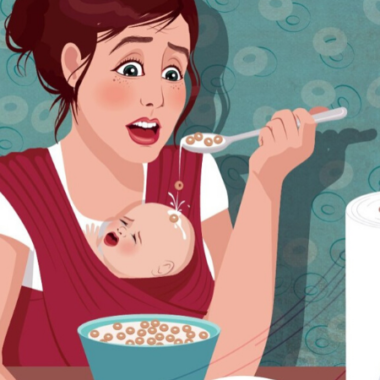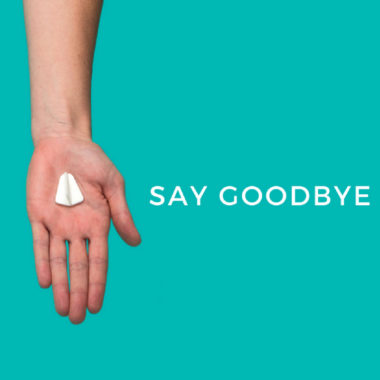You found out you are expecting a little one and you know right from the start that you want to breastfeed. You have heard about the amazing benefits for both mommy and baby- faster weight loss postpartum for mom and of course the many benefits for baby. Most moms start off with every intention to provide these amazing benefits to their child.
Until the delivery day arrives. And reality sinks in. Breastfeeding is HARD work. It will take commitment above anything else to overcome the obstacles many women experience during those first few weeks of nursing.
From my experience exclusively breastfeeding my two boys without the use of formula, you need to be prepared for the dark side of breastfeeding so you know what to expect when things do not go as you expected right off the bat. The postpartum hormones combined with feeling like you are failing at feeding your child will leave you drained, frustrated, and ready to throw in the towel if you are not prepared.
Before I had my first son, I read all the books. I took the classes. I felt 100% prepared to succeed with breastfeeding. I did immediate skin to skin. He latched at the hospital. Everything was going according to plan. Until things happened that I was not prepared for that left me feeling discouraged and defeated. I was ready to give up.
The breastfeeding position you learned during your hospital stay may not work for you once you get home with the baby
Most people do not have a hospital style bed at home so the position that worked during your hospital stay may not work for your home life. It is important to be flexible and try different feeding positions until you find the one that works for you and your new baby so do not be afraid to change things up.
Breastfeeding should not leave you bleeding and in pain
Aside from engorgement and the sensation you feel during the initial latch and letdown, if your baby is properly latched, you should not experience severe pain. Your nipples should not frequently crack or bleed. If these things are happening, it is a sign your baby is not latching correctly. Proper latching will make or break you ability to stick with breastfeeding because let’s face it- no mom wants to spend every day of their life in pain. My first son struggled with latching properly and it was something we had to work to correct.
Your baby’s weight will drop until your milk comes in
Boy was I not prepared for this one. The creamy, yellow milk your baby is consuming during those first few days is called colostrum. This is not your actual milk so your baby is only consuming a small quantity each feeding. For this reason, exclusively breastfed babies can lose up to 10% of their birth weight by the time you are discharged from the hospital. Do not let this freak you out! You should get your real milk in within 3-4 days postpartum and as long as your baby returns to birth weight by their two week appointment with the Pediatrician, you are right on track.
The hospital lactation consultant may encourage you to supplement
At least this was my experience as a first time mom. When babies drop their birth weight, it is not uncommon for you to receive advisement to supplement with formula if your milk has not come in before being discharged from the hospital. If it is your goal to exclusively breastfeed, do not feel pressured to feed your baby formula while in the hospital. If your baby is getting the recommended amount of wet diapers within a 24 hour period, chances are things are going well. In my case, my milk arrived later in the day after I was discharged. Now if your milk has not come in by the 4th or 5th day postpartum, you may want to supplement just to be sure your baby is getting what they need until your milk arrives.
You will feel like a milk maid
Newborns need to eat at least 8-12 times in a 24 hour period which means you will nurse every 2-3 hours! This is a huge adjustment for both new mom and the baby as you get to know one another. You will have feedings throughout the night and your baby may often want to eat small amounts in faster frequencies known as cluster feeding here and there which will make you feel like all you do all day long is feed your baby!
You will be worried your baby is not getting enough to eat
When you are exclusively breastfeeding, the only way to tell if your baby is getting enough to eat is by tracking wet and poopy diapers. When you can’t visually see how much milk your baby is consuming each day, it is normal to feel concerned. Make sure you are feeding your baby 8-12 times every 24 hours at a minimum for as long as he or she wants to nurse even if you have to wake the baby to eat. Download an app to help you keep track of all this information as your pediatrician will ask you about this a lot that first couple of weeks.
Get help if you need it!
There are a ton of resources available online for breastfeeding support and your hospital should have a lactation department available for you. If you are concerned about any part of breastfeeding, reach out to a lactation consultant for help before you give up. After my first son was born, I paid a visit to the lactation department at my hospital a week post-delivery and it was the best decision I could have made to give us a successful journey.
Understand it will be a huge commitment of time and energy so don’t give up!
Since your baby is depending on you and only you for 100% of their meals, you will feel like you are drowning. Make sure your spouse or support system is helping out with other things around the house and that you are getting rest when your baby is sleeping. Trust me, you will want to do this because sleep deprivation will set in very quickly into your journey and you have to keep your energy up. Most importantly- if things do not work out with breastfeeding, know that you gave it your all and do what is in the best interest of your family.
If you can make it through these initial potential setbacks with breastfeeding, you should be off to a successful journey. Good luck, mama!
- 6 Tips On How to Prepare Your Young Child For A New Baby - August 21, 2020
- Toddler Tantrums: 5 Tips for Handling Them. - September 28, 2019
- Breast Milk Supply Shortage?5 SIMPLE Things To Do Immediately - September 5, 2019








